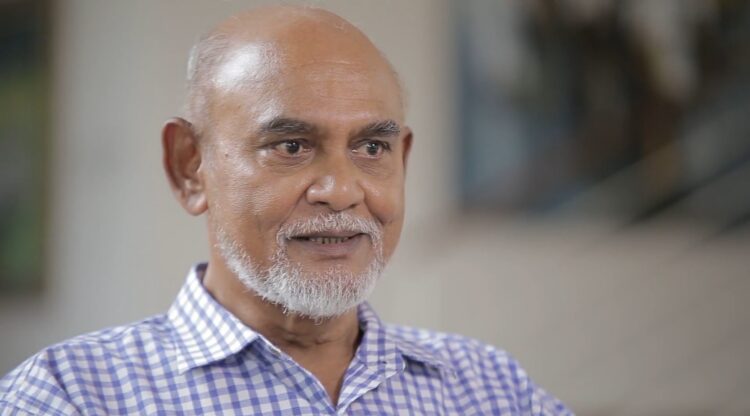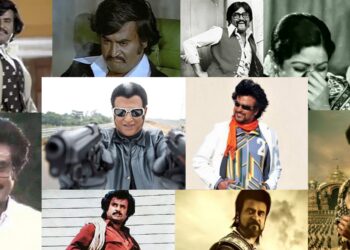He grew up watching sandiwaras on stage, and later reenacting them with his friends from the neighbourhood. It was only natural for Mano Maniam to grow into an accomplished stage actor.
His stint as Uncle Chandran on the Malaysian sitcom Kopitiam made him relatable to the average Malaysian, and his role as Moonshee in Hollywood’s Anna and the King gave him worldwide recognition. And boy, was he loved. The 74 year old thespian is also an academician, writer, Tamil language enthusiast, cultural anthropologist and avid traveller.
Mano talks to Varnam about his complicated relationship with the arts, his love for our nation and his views on the Malaysian diaspora.
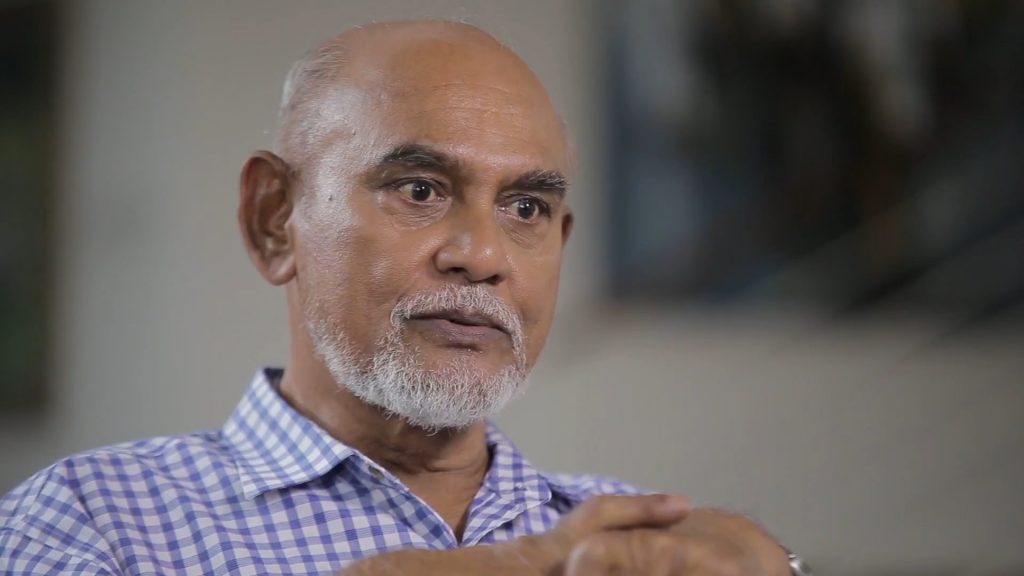
“I grew up in a new country called Malaya,”
He recollects his early childhood, “I was born at the end of the second world war, and I grew up in this new country called Malaya, just as it was opening up,”
“After we gained independence, I got my first piece of paper saying that I’m a Malayan. There was no plastic in those days. Just this 6 x 4 inch sheet which was a carbon copy of the registration, that I held on to, and was so proud to hold,” he tells us.
Acting as a form of entertainment
When asked how did acting come into his life, he replies, “I could write a chapter in a book on this! It happened during my childhood. After World War II ended, there was very little – even in terms of jobs and food, what more media. You were lucky if you could afford an old radio. That would be the only source of entertainment and information,”
“It was with the neighbourhood kids I spent my time with, inventing and playing games. If a person was lucky enough to see a movie, he would return and tell us all the story. And I think that’s where the imagination would come in. We would reenact what we saw endlessly until the next movie comes along. This was our entertainment – telling stories and playing the parts in the story,”
We would reenact what we saw endlessly until the next movie comes along.
Shakespeare, and then the world! But Brickfields always wins
“My first stage involvement was in the year 1961. It began with a school production in my school, the Anglo Chinese School in Ipoh, in a few Shakespearean plays until in 1963, I played the title role of Macbeth,” Shakespeare’s work grew on him.
Since that first stage appearance, Mano has been in 5 different productions of Macbeth over a span of 29 years. He has also taken on a role that very few would dare attempt – King Lear. “I have played all of Shakespeare’s tragic roles except Hamlet. Shakespeare plays gave me my educational training. And just like that, it has been 58 years!”
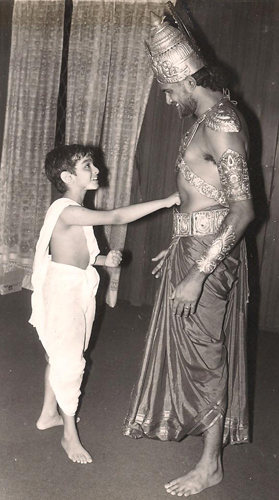
Mano was the recipient of the Fulbright Distinguished Artiste Award in 2000. “As a result of the Fulbright Award, I went to America in the year 2000. I was attached to a few universities and I worked in the theatre departments. My scope of work didn’t just end with the celluloid. I have attended and conducted workshops in Malaysia, India and America,”
On the local front, Mano has won the Best Supporting Actor award in the Malaysian Film Festival for the Malay film Mat Gelap in 1984. He also had played Tun Sambanthan in a Tamil language play, Sambanthan by Fenomena Arts Group. In his career, Mano has played Jawahalal Nehru, Rabindranath Tagore and most recently, this year, Mahatma Gandhi.
Mano’s humility, however, shines through, “That’s just one part of me. You’ll see me in Brickfields, walking around in a pair of shorts and a singlet. That’s just who I am,” he smiles.
You’ll see me in Brickfields, walking around in a pair of shorts and a singlet. That’s just who I am
“Only two weeks ago, I was still performing,”
The veteran actor hasn’t waved goodbye to the arts, he tells us, “Only two weeks ago, I was still performing. There is a revival of the local hit comedy series Kopitiam, called Kopitiam: Double Shot, and the original cast will be seen in a few episodes,” he tells us.
“In the world of theatre, there are always debts to pay. These are debts of kindness. Although I said that I would step down in 2016, there were a few debts that I decided to honour and I last performed in August this year,”
Ah, Kopitiam
As he reminisces about his stint on Kopitiam, he tells us, “I got a call from Joe Hasham telling me about this new guy in town, a Malaysian who had been in the United Kingdom and now wanted to produce a local sitcom, sometime in 1997,”
“Of course, at the time, I didn’t know who Ng Ping Ho (the creator of Kopitiam) was. He called me up, and we met,” Not knowing the norms of Malaysia served Ng well, Mano recollects, because his idea was gold.
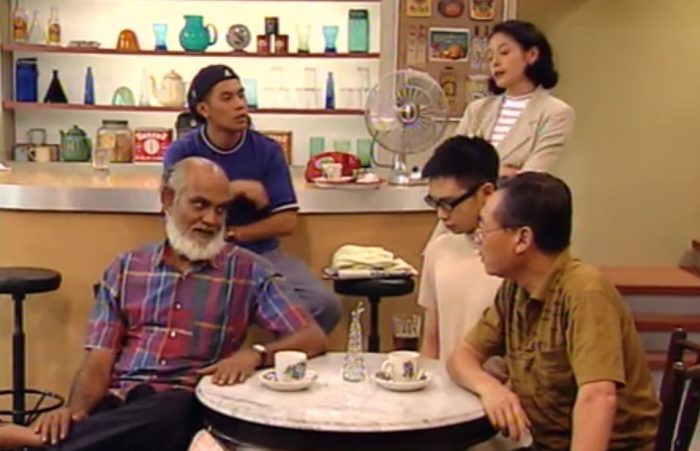
“He told me that he was trying to create a local sitcom based on the American show Cheers. The setting obviously couldn’t be a pub, so it was a coffee shop. It was also based on Friends, he told me. So it’s Cheers plus Friends in a kopitiam in KL,”
“I asked him, what do you have for old people, then? The cast is on the young side. They needed a guy my age, so I roped in Tan Jin Chor. And then we had Joanna Bessey, Douglas Lim, Lina Teoh and Rashid Salleh. We did the pilot in 1997, and as they say, the rest is history,” he smiles.
“In 1998, it was ready. At about that time, a brand new television station had started, called NTV7. They were working on getting the license to broadcast, because the stipulation was that 40% of the content needed to be local. They watched Kopitiam, and they grabbed it, saying they want it for 3 seasons,” Mano tells us.
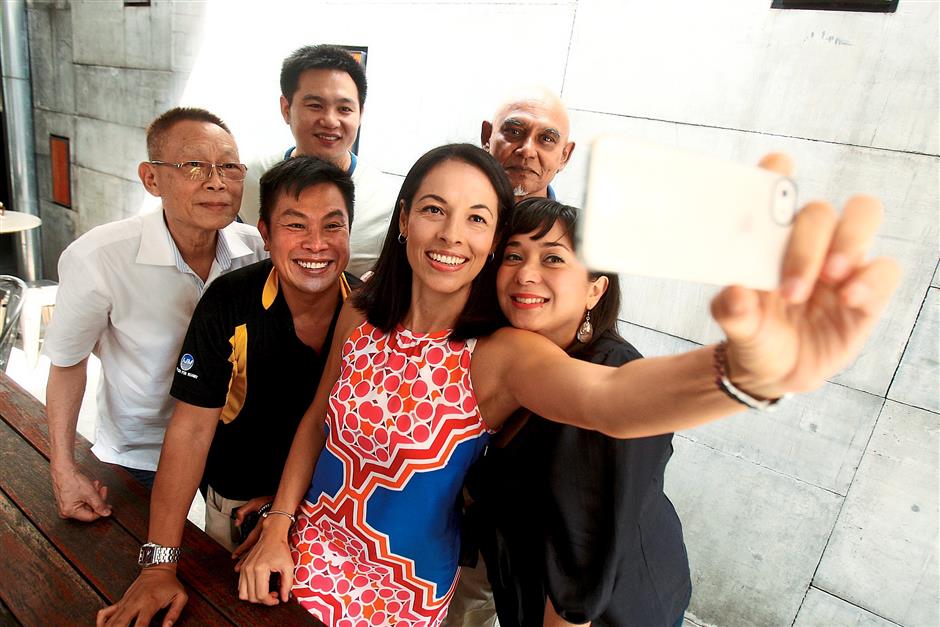
He was also a corporate figure
Mano was the head of a private organisation for some time, in addition to his acting and academics. “Not many people knew this about me. My corporate career was separate from my teaching and acting,”
“In fact, I would always claim that I had a brother who was the actor. I had to! Imagine talking business over a table, and being asked, “Hey, aren’t you the actor?” My response would be, “Oh no, not again, I’m going to kill my brother! People always mistake me for him because of his acting!”” he laughs.
“Malaysian Indians need to show more than we crow”
The Malaysian Indian community often perplexes Mano, “We need to show more than we crow. Our ability to use the language and think in terms of our culture is on a downhill gradient. This, in turn, gives an oomph to those who say that vernacular schools should be shut down,”
“There have been many voices of late, telling us to go back to where we came from. Our only response is this – we need dig into ourselves, listen to that voice inside and keep going to pursue our goals and ambitions. That’s really the only way to go about it,” he says sternly.
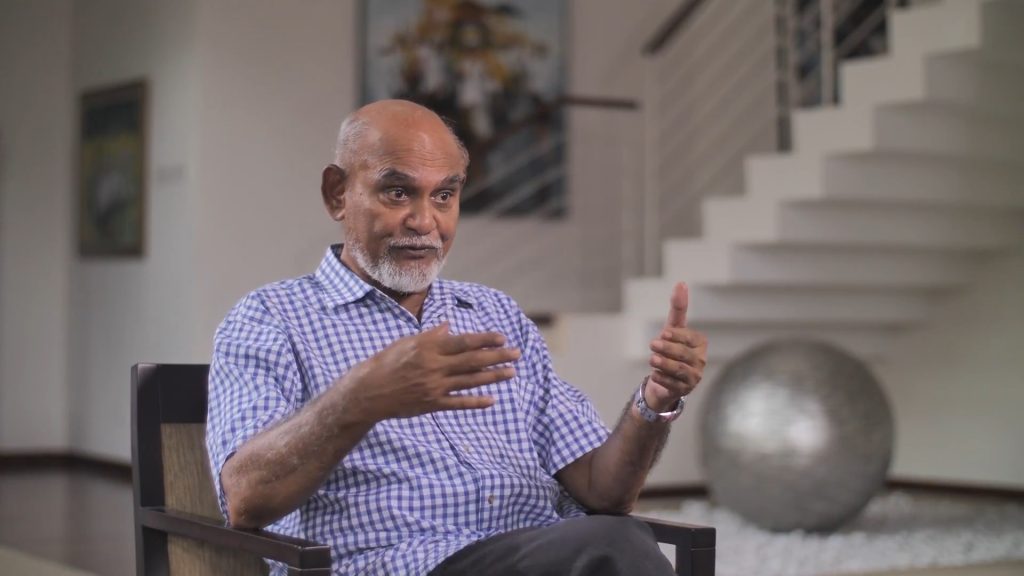
Having completed his postgraduate studies in intercultural management in the 1970s, Mano is also a culture critique. “I go back and forth between this acculturisation process of Tamil culture and the other cultures of Malaysia,”
“When I did my thesis on Malaysia, we were just recovering from 1969. And let me tell you, we cannot afford to have another 1969, because in the next one, someone will lose and someone will win. That isn’t what we want.” he says.
“Keep the Tamil culture alive!”
His late father, Mr M S Maniam, was a huge influence in his life then, and now. “My father was an English school teacher, Tamil journalist and crusader, a real puratchi kaarar. He was the founder of the Agila Malaya Tamilar Sangam in the 1960s. It was an organisation that advocated the Tamil language and culture,” Mano has his father to thank for his passion for the Tamil language.
“The Tamil institutions, schools, dance and music academies, temples and festivals, keep all of this going. Make learning Tamil fun! If a child attempts to speak Tamil, however mangled it may be, don’t laugh at him or her. Encourage them. If you lose three, and save two out of five, it is still something. You cannot simply throw away the baby with the bathwater,”
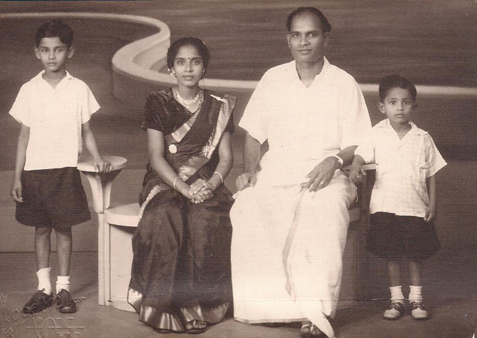
All this ties back to his late father, Mano tells us. “In fact, when I went to pursue my undergraduate studies in university, my father told me that I must study Tamil for the three years of my course. And so I did, although my major was geography. I am a true appanukku pirantha magan,”
“Avan koothadi”
“You know, there is also a group of people in any society who do not look very kindly upon artists or actors. It’s a thought from the Sangam era, where the acting troop consisted of runaways and prostitutes. They were not to be trusted. So there has been a stigma on actors in our culture.” Mano explains.
“Avan koothadi, they say derogatorily. Actors had been reduced to that level, from a different time when they were seated next to the kings or zamindars, the very people who funded the arts,”
“We are not koothadis. No, we are serious people, we show the future what our past was. In this trade and art, friendship, kinship, trust and helping one another is at the very core of it,” he states.
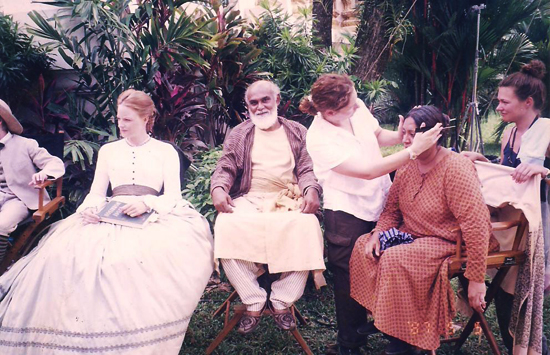
Retirement? Nonsense!
“I never retired! I just walked out of my job. Why do you want to wait until you’re grey and stooped to have someone put a gold watch on your wrist and say, now you’re retired, go to pasture? Nobody has that right over my life. I quit the corporate world at the age of 46. For close to thirty years I have been unemployed, and I like to call it unemployable,” he declares.
The travel bug bit Mano long before it became trendy. “Traveling gives me ‘oh my God’ moments. Just a month ago, I had it in Lake Toba, Sumatra. Before that, in Mount Santorini where I ventured without my crutches after an injury, and in Iceland, where there was another inactive volcano. I am headed to the Pyramids of Giza next!”
“I am enjoying life very much. As I travel, I read and I write. In fact, I am now trying to consolidate my writing over the years and make some sense of it, if someone else at sometime, somewhere were to read it,” Mano tells us.

“I still act, and repay debts of kindness. Its not that I am itchy or want to be popular, but it is the single, longest unbroken activity in my life,” Having done it in three languages across various forms of media, from the box to the screen to the stage to now being online, in over 4 continents, the septuagenarian has much to be proud of.
Having done it in three languages across various forms of media, from the box to the screen to the stage to now being online, in over 4 continents, the septuagenarian has much to be proud of.
“I owe it to my neighbourhood friends,”
We talk about his almost 6 decades of experience in theatre, to which he quips, “I owe it very much to my father and my comrades. Also my neighbourhood friends who told each other stories. That was our entertainment, you see, it all started then, 70 years ago,”
Mano Maniam may be at the pinnacle of success, but he hasn’t had enough. “Life is defined by the art of becoming, but to never become,” he says. “It is the process of doing something, being better, and always staying in tune with the forces around you. The body dies eventually, but the spirit lives on,”
Kopitiam is currently streaming on Netflix.
Follow us on Instagram, Facebook or Telegram for more updates and breaking news.


